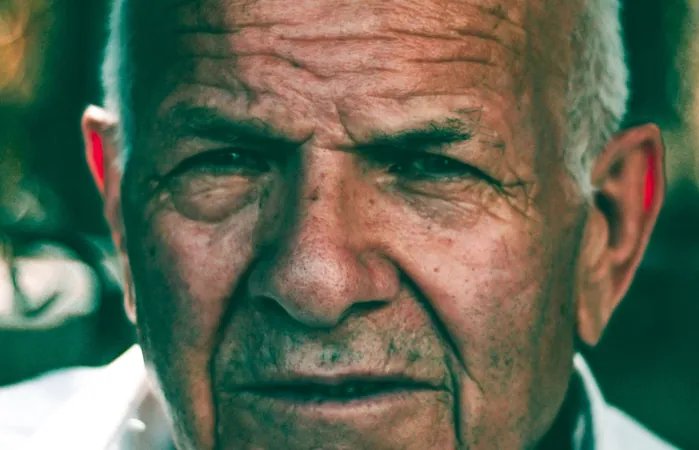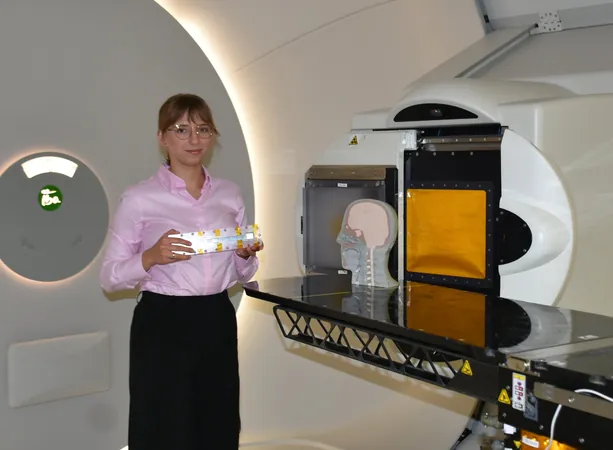
Unlocking the Secrets of Sleepiness: Can Your Voice Reveal How Tired You Are?
2025-07-09
Author: Sarah
A Groundbreaking Study Connects Voice and Sleepiness in Older Adults
Ever wonder if your voice can reveal your level of sleepiness? A compelling new study from UCLA researchers suggests it can! Their exploration into Verbal Reaction Time (VRT)—the time it takes for someone to respond verbally—has unveiled its potential as a key indicator of sleepiness in older adults.
Why Sleepiness Matters More Than You Think
Sleepiness isn’t just an inconvenience; it poses serious safety risks, especially for older adults. Conditions like cognitive impairment and an increased likelihood of accidents make it critical to address excessive sleepiness. Many older individuals, particularly those using sedative medications, might not even realize just how sleepy they truly are.
How the Study Worked: A Deep Dive
The UCLA study, titled "Predicting Subjective Sleepiness During Auditory Cognitive Testing Using Voice Signaling Analysis," examined adults aged 55 and up with insomnia histories and sedative use. Participants underwent cognitive assessments via a mobile app that recorded their verbal reactions. The researchers meticulously measured VRT, comparing the delay in responses to the participants' self-reported sleepiness.
Revolutionizing Sleepiness Detection with Technology
By employing advanced analytical tools, the team successfully linked speech timing to perceived alertness. A computer model demonstrated remarkable accuracy, predicting sleepiness levels based solely on voice recordings. Participants who took longer to respond reported feeling sleepier, establishing a fascinating correlation.
Impressive Results: Accuracy You Can Trust
The findings were striking: the model achieved an impressive F1-score of 0.80 ± 0.08, indicating strong predictive capabilities. The voice analysis detected speech with 92.5% accuracy, signaling that monitoring sleepiness could become a breeze, especially outside clinical settings.
A Simple Tool with Big Potential
Dr. Tue T. Te, the study's lead author, highlighted the transformative potential of this research: "This study shows that something as simple as how quickly someone starts speaking can tell us a lot about their level of alertness. It opens the door to using voice as a passive, scalable tool for monitoring sleepiness during everyday activities."
Looking Ahead: The Future of Sleep Monitoring
The research team aims to broaden their study, including diverse populations and integrating findings into everyday technology like smartphones and telehealth platforms. Future investigations may also assess how voice-based indicators relate to medication impacts and early signs of cognitive decline.
This study not only sheds light on a critical health issue but also illustrates the innovative ways technology can help us understand ourselves better. Could your voice be the key to a safer, more alert life?




 Brasil (PT)
Brasil (PT)
 Canada (EN)
Canada (EN)
 Chile (ES)
Chile (ES)
 Česko (CS)
Česko (CS)
 대한민국 (KO)
대한민국 (KO)
 España (ES)
España (ES)
 France (FR)
France (FR)
 Hong Kong (EN)
Hong Kong (EN)
 Italia (IT)
Italia (IT)
 日本 (JA)
日本 (JA)
 Magyarország (HU)
Magyarország (HU)
 Norge (NO)
Norge (NO)
 Polska (PL)
Polska (PL)
 Schweiz (DE)
Schweiz (DE)
 Singapore (EN)
Singapore (EN)
 Sverige (SV)
Sverige (SV)
 Suomi (FI)
Suomi (FI)
 Türkiye (TR)
Türkiye (TR)
 الإمارات العربية المتحدة (AR)
الإمارات العربية المتحدة (AR)